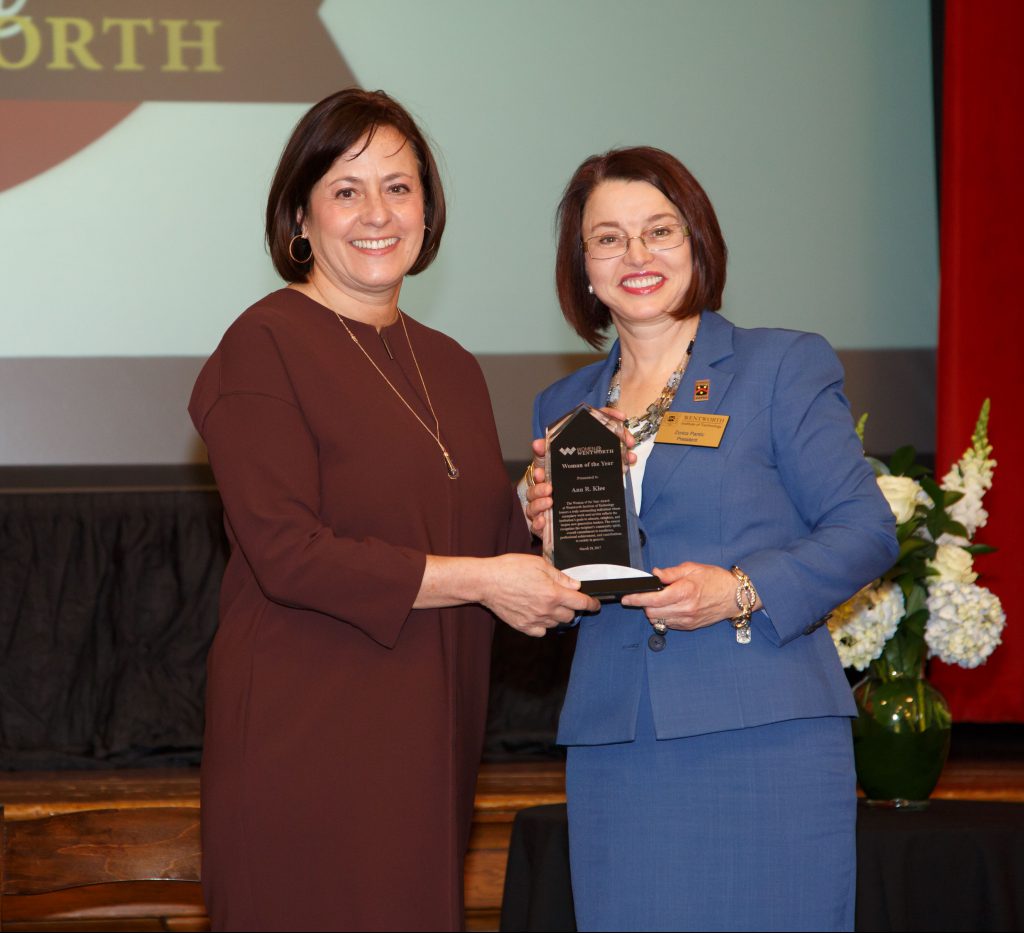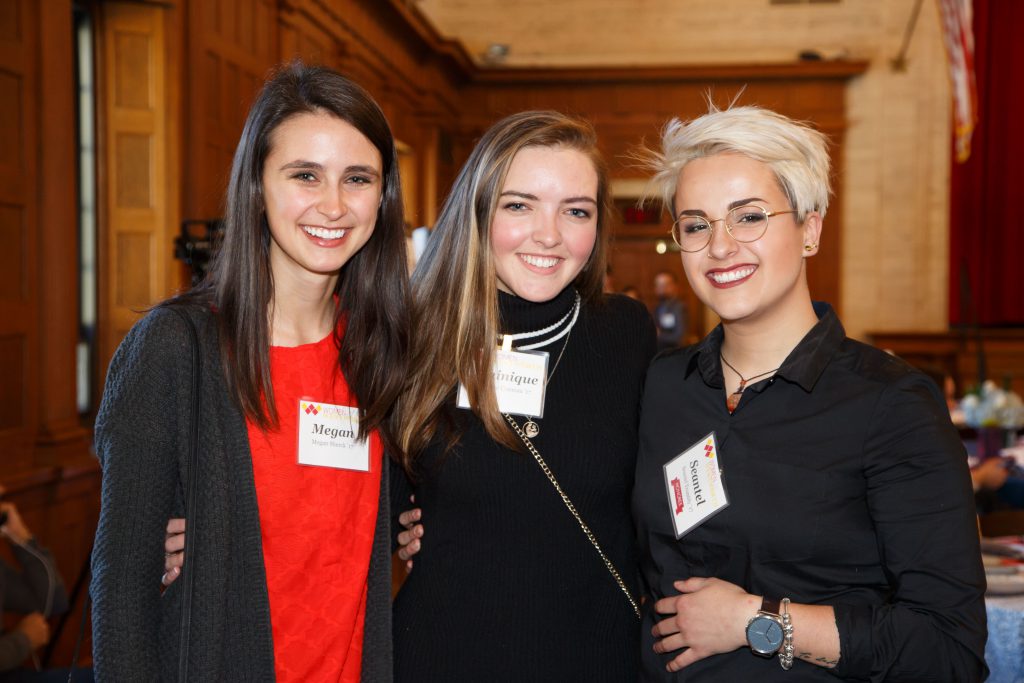By Dennis Nealon & Caleb Cochran
ON HIS FIRST DAY ON CAMPUS IN 1971, new Wentworth President Edward T. Kirkpatrick had a question:
“Where are the women?” he asked.
Less than a year later, in April 1972, the Board of Trustees accepted and ratified the recommendation of the Institute’s education committee to admit women to Wentworth.
That historic decision opened the door for five students who arrived at Wentworth in the fall of 1972: Doris Dennis; Jane Estella, AET ’75; Virginia Butcher, AET ’75; Deborah Banks, AET ’75; and Susan Hardt, BCS ’74.
After the 1972 vote, there would be no looking back. By 1989–1990, 437 female students studied at the Institute; in 2015–2016, 918 women— just over 20 percent—were enrolled.
Progress has been steady, but it hasn’t always been easy.
“I’ll never forget my first day,” says Irene McSweeney, BCS ’83, CEC ’85, director of construction at the Boston Water and Sewer Commission. “I walked into my first class and several of the other students told me that I was in the wrong room.”
Today, the 1972 vote echoes on campus in contrasting ways, as Wentworth celebrates how far it has come while acknowledging the work that must be done to achieve a more balanced student body.
On the Right Path

The 2016 Wentworth women’s soccer team.
This year’s Women at Wentworth gathering, held March 18 in Watson Auditorium, drew about 300 attendees—by far the largest crowd in the 11-year history of the event—and honored Woman of the Year Ann R. Klee, a corporate executive at General Electric and president of the GE Foundation.
To mark the 45th anniversary of the vote for coeducation, organizers recognized 44 significant women in Wentworth’s history, and one team— the 2016 women’s soccer team, which won the Commonwealth Coast Conference championship, the first conference championship in any sport in the history of Wentworth women’s athletics.
President Zorica Pantic said evidence of women’s progress at the Institute includes an increase in the number of female faculty members— to 35 percent—and in the number of young women enrolling in programs such as Construction Management. Pantic also noted that, despite making up just 20 percent of the student population, female students hold about 50 percent of leadership positions and win more than half of academic and other awards.
“I am very proud of our female students,” Pantic says. “They are confident, they know what they want to do, and they’re well prepared.”
Megan Costello, executive director of the City of Boston’s Office of Women’s Advancement, spoke at the event about challenges for women— not only at Wentworth, but in society more broadly.

2017 Woman of the Year Ann R. Klee with President Pantic.
“We are on the right path,” she said, “but progress and change take time. We need more men involved, too. We cannot solve 100 percent of the problem with only 50 percent of the population.”
Klee outlined an ambitious, multimillion-dollar campaign by GE to work with the City of Boston and academic institutions to attract more young women to STEM fields and to add 20,000 women to the corporation’s worldwide technical workforce by 2020.
“Data show that women are still massively underrepresented, with only about 20 percent of women in IT and engineering positions in the workforce globally, and somewhere between 20 to 30 percent rising to senior leadership positions,” Klee said. “Notwithstanding the development of new programs and public attention, STEM education is still not attracting enough women students. We have to change this.”
The event also highlighted contributions to Wentworth by corporations including Consigli Construction Company, which recently gave $100,000 to the Institute to help transform the library into the Douglas D. Schumann Library & Learning Commons, to support students through sponsorship of the annual President’s Cup Challenge golf tournament, and to launch the Women at Wentworth Endowed Scholarship Fund.
“We feel strongly that a scholarship fund like this is important because it opens doors,” said Matthew Consigli, president of the Milford, Mass.- based company. “It really is an honor for us to be a part of these efforts.”
For women at Wentworth, much work remains. But they are not daunted by the road ahead.
“Women know what they’re getting into when they come to Wentworth,” says Annamaria Wenner, vice president for student affairs and dean of students. “They know they’re one of the 20 percent. But it’s a fierce 20 percent. The women who come to Wentworth are ready for the challenge, they embrace it, and they succeed every step of the way.”

Megan Sherck, Dominique Comeau, and student speaker Seantel Trombly, all BSA ’17.

